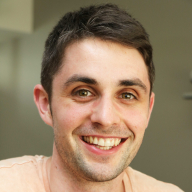
PeterSlattery
Bio
Participation4
Researcher at MIT FutureTech helping with research, communication and operations and leading the AI Risk Repository. Doing what I consider to be 'fractional movement building'.
Previously a behavior change researcher at BehaviourWorks Australia at Monash University and helping with development a course on EA at the University of Queensland.
Co-founder and team member at Ready Research.
Former movement builder for the i) UNSW, Sydney, Australia, ii) Sydney, Australia, and iii) Ireland, EA groups.
Marketing Lead for the 2019 EAGx Australia conference.
Founder and former lead for the EA Behavioral Science Newsletter.
See my LinkedIn profile for more of my work.
Leave (anonymous) feedback here.
Posts 45
Comments427
Topic contributions3
Re: Googling, this post wasn't really motivated by finding out how to donate crypto/stocks to AMF. I mainly just wanted to signal to EA orgs that they should be able to receive such donations (or understand why some might not accept it).
The rough sequence of events was:
- I started by trying to donate stock/crypto to Horizon and didn’t see an obvious pathway on their site.
- I found their (inactive) profile on Every.org and noticed that a number of other EA-aligned orgs weren’t (active) there either.
- I searched things like “how to donate cryptocurrency to Effective Altruism charities” and ran into posts/resources that seemed outdated.
- Then I did a quick (and clearly insufficient) scan of GWWC and AMF and mistakenly concluded they didn’t support these options.
- I then felt that there was some reasonable probability that there might be a blind spot/gap here and posted the question.
Given my experience, I wonder if it would be helpful for someone (CEA?) to maintain a simple resource listing which EA orgs accept stock and crypto? I'm not sure if there is enough confusion or demand to justify it, though.
Yeah, I can see how that’s a bit of a dilemma. To avoid the flags, maybe you could make it a separate download or something people have to specifically email you to request.
I can also imagine that for some people, especially those in certain jobs, the screenshots or logging features won’t be worth the risk. On that note, I decided to uninstall the tool myself, given the security considerations and the requirements from my employer.
I looked into this and no longer have these concerns.Thank you for this. I have some security concerns, and I am uninstalling the software after I received the message below from my university. Can you please respond here to explain?
"IS&T Information Security received a Crowdstrike alert about some software you downloaded from donethat.ai. Presumably it was intentional, but this software comes installed with what looks like keylogger functionality. ...Having a keylogger on your system is pretty risky. Even if they purport to not store data, there is always the risk that the software or your machine is compromised, and the data stream is intercepted for misuse"
...
This installer wrote the following file, which is associated with keylogging functionality:
FILE: ...\node_modules\node-global-key-listener\bin\WinKeyServer.exe"
Do you think that it would be better to just add a helpful or heart emoji to the post instead? I used to leave the same sorts of comments as Ben. These got downvoted occasionally. I interpreted this pattern as being due to people not appreciating these sorts of 'thank you comments'. When emoji react were added, I therefore switched to emoji reacting, as I felt that this would achieve the same outcomes without creating the 'noise' of a 'thank you comment'. However, I could go back to leaving comments if that seems like a better approach.

My understanding is that I can simply need to print and send the letter/email from Every.org to Interactive Brokers, and they will facilitate the transfer.
One thing to note here is that end-of-year transfers can only be facilitated if the request has been made by the start of December. Another is that because I submitted my request too late in December, I will have to submit it again in January.
However, all things considered, if they do facilitate the transaction based on the submission of the email/letter shared from Every.org it will feel like a relatively straightforward process for me. However, maybe I'm going to find out later that there are some other complications in the process that I've missed?